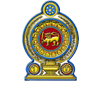
Sign in
Research Proposal (Draft)
Title: Monitoring of the quality of irrigation water in three selected districts
Investigators:
i) Dr (Mrs) T.N. Wickramaarachchi, Senior Lecturer/Dept. of Civil and Environmental Engineering, University of Ruhuna
ii) Dr. Cyril Kariyawasam, Senior Lecturer/Dept. of Electrical and
Information Engineering, University of Ruhuna
iii) Eng. L.I. Ramanayaka, Chief Irrigation Engineer, Provincial Department of Irrigation (Southern Province)
iv) .............................................
v) .............................................
Research assistants:
i) Final Year Undergraduates, Dept. of Civil and Environmental Engineering, University of Ruhuna
Introduction:
Sri Lanka irrigated agriculture is over 2000 years old. Ancient kings built reservoirs and irrigated lands in the dry zone. The speculation is that they used indigenous and eco friendly methods to fertilise and to rid of the pests. One such technique is the use of 'kurulu paluwa', to distract the birds from the main irrigated area.
However, since independence, particularly after the implementation of Galoya project, artificial fertilizers and pesticides were introduced to our agriculture system. Undoubtedly this increased the crop production but at a cost to the society.
Problem:
Common diseases affecting the public’s health are all too well-known now. Some of these are asthma, autism and learning disabilities, birth defects and reproductive dysfunction, diabetes, Parkinson’s and Alzheimer’s diseases, and several types of cancer particularly kidney. Their connection to pesticide exposure continues to strengthen despite efforts to restrict individual chemical exposure, or mitigate chemical risks, using risk assessment-based policy.
The problem of chronic kidney disease of unknown aetiology (CKDu) has been recognized in Sri Lanka since the late 1990. According to past studies, factors that appear to play a role in the aetiology of CKDu include, chronic exposure to low levels of Cadmium through the food chain, exposure to nephrotoxic pesticides and concurrent exposure to other heavy metals. Several researchers have already shown that water in the endemic areas is heavily contaminated with pesticides and its residues [Wickramaarachchi, 2005].
Cadmium has been identified as a risk factor for the pathogenesis of CKDu in Sri Lanka (Jayasumana et al, 2014). Cadmium is mainly present in the fertilizer, Triple Super Phosphate, given as a part of agriculture subsidy by the government [Chandrajith et al, 2009]. Arsenic in addition is present in the imported pesticides available in the open market [Jayasumana et al, 2011].
With some of these diseases at very high and, perhaps, epidemic proportions, there is an urgent need for public policy to end dependency on toxic pesticides, replacing them with carefully defined eco friendly strategies.
Scope and objectives of this research:
This research will be limited to Galle, Matara and Hambantota districts. Its objectives are twofold:
· To find out whether the quality of irrigated water is within the acceptable limits.
· If not, suggest measures that can be taken to improve the quality, particularly in the form of guidelines for users
Methodology:
i) Data collection
For the purpose of this study three representative areas will be selected from Galle, Matara and Hambantota.
Several sampling points will be established to measure;
· Water quality and
· Flow in canals
These points will represent both water delivery canals and drainage canals.
Water samples will be taken every two weeks during cropping season covering different crop growth stages.
ii) Water quality sample testing
The samples will be tested for heavy metals; Cadmium, Lead and Arsenic that appear to play a role in the aetiology of CKD.
iii) Crop/soil sample testing
Crop/soil samples from several locations within the irrigated area will be tested for heavy metals
iv) Analysis
The data will be analysed
- To confirm whether the quality of water is within the acceptable limits.
- To determine levels of heavy metals in crops/soils.
- To identify variation of heavy metals with flow in canals during different crop growth stages.
Programme of work:
|
Year 2016/2017 |
|
|
|
|
|
|
|
|
|
|
|
|
|
Item |
Apr |
May |
Jun |
Jul |
Aug |
Sep |
Oct |
Nov |
Dec |
Jan |
Feb |
Mar |
|
Literature review |
|
|
|
|
|
|
|
|
|
|
|
|
|
Field visits |
|
|
|
|
|
|
|
|
|
|
|
|
|
Water sample collection |
|
|
|
|
|
|
|
|
|
|
|
|
|
Crop/soil sample collection |
|
|
|
|
|
|
|
|
|
|
|
|
|
Canal flow measurement |
|
|
|
|
|
|
|
|
|
|
|
|
|
Sample testing |
|
|
|
|
|
|
|
|
|
|
|
|
|
Analysis |
|
|
|
|
|
|
|
|
|
|
|
|
|
Draft report |
|
|
|
|
|
|
|
|
|
|
|
|
|
Final report |
|
|
|
|
|
|
|
|
|
|
|
|
Budget:
|
Item |
Description |
Rate (Rs) |
Quantity |
Amount (Rs) |
|
1 |
Laboratory testing of Water quality sample for three parameters (Cadmium, Lead and Arsenic) (3 parameters x 3 locations x 3 districts x 6 times = 162 samples) |
3,500/=* per parameter per sample |
162 samples |
567,000/= |
|
2 |
Laboratory testing of Crop/soil sample for three parameters (Cadmium, Lead and Arsenic) (3 parameters x 3 locations x 3 districts x 2 times = 54 samples) |
5,000/=* per parameter per sample |
54 samples |
270,000/= |
|
3 |
Flow measurements in canals (including purchase of current meter, hand-held GPS etc) |
……… |
………. |
………….. |
|
4 |
Traveling to site investigations and collect samples - 10 visits to Hambantota (Via Galle and Matara) |
……… |
…………. |
………….. |
|
TOTAL : |
|
|||
*Note: samples will be tested at Environmental Engineering Laboratory, Faculty of Engineering, University of Ruhuna. Only the cost for the consumables is included.
References:
Chandrajith R, Seneviratna S, Wickramaarachchi K, Attanayake T, Aturaliya TNC, Dissanayake CB: Natural radionuclides and trace elements in rice field soils in relation to fertilizer application: study of a chronic kidney disease area in Sri Lanka.Environ Earth Sci, 2009, 60:193–201.
Channa Jayasumana, Ranil Gajanayake, Sisira Siribaddana, Importance of Arsenic and pesticides in epidemic chronic kidney disease in Sri Lanka, BMC Nephrology, 2014,15:124.
Jayasumana MACS, Paranagama PA, Amarasinghe MD, Fonseka SI, Wijekoon DVK: Presence of Arsenic in pesticides used in Sri Lanka.In Proceedings of the Water Prof Day Symp: 1st Oct 2011; Peradeniya.Edited by Dayawansa NDK, De Silva RP. Sri Lanka: Post graduate Institute of Agriculture; 2011:127–141.
Wickramaarachchi WDN: Irrigation water quality along the cascade system in thenortheastDryzoneofSriLanka, PhD thesis. University of Peradeniya, Sri Lanka. 2005.
Comment on Us
Contact Us
Southern Provincial Irrigation Department
Address:
Provincial Director of Irrigations office,
5th floor,
District Secretariat Building,
Galle,
Sri Lanka.
| Telephone | : | +94 91 224 5176 +94 91 222 3206 |
| FAX | : | +94 91 224 5176 |
| : | info@irrigationdept.sp.gov.lk | |
| Follow Us | : |  
|





